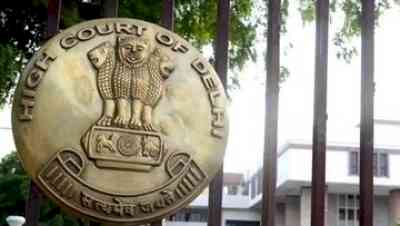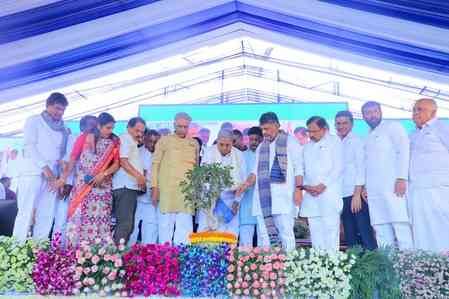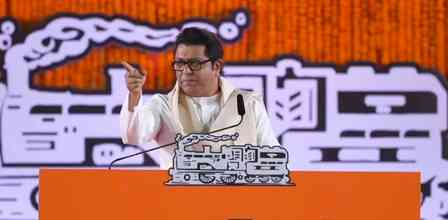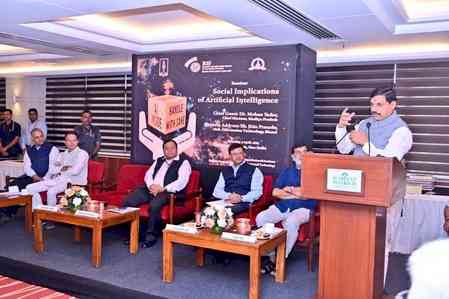Delhi HC judge throws light on issues pertaining to POCSO Act
A Delhi High Court judge, while speaking as a Chief Guest in a seminar by Delhi Commission for Protection of Child Rights on "Rehabilitation of POCSO victims: Strategies, Challenges and Way Forward", said that the Protection of Children from Sexual Offences (POCSO) Act's issue of criminalisation of "adolescent love" has to be addressed.

New Delhi, May 6 (IANS A Delhi High Court judge, while speaking as a Chief Guest in a seminar by Delhi Commission for Protection of Child Rights on "Rehabilitation of POCSO victims: Strategies, Challenges and Way Forward", said that the Protection of Children from Sexual Offences (POCSO) Act's issue of criminalisation of "adolescent love" has to be addressed.
Justice Jasmeet Singh also brought up a number of concerns with the enactment.
He said: "Are we over criminalising the adolescent love? This is an issue which, according to me, needs a look because there are cases where one is 17 and the other is 20. They have fallen in love. The law says consent of a minor is no consent. But I personally feel that this is an issue which needs to be looked into and needs to be addressed, needs to be flagged."
Justice Singh pointed out that one of the most important issues which he feels needs to be seen, needs to be looked is adolescent love.
"Now what happens is, today we have criminalised sexual acts with children below 18 years. Adolescents are children who want to experiment, and who would be sexually active. Is a person who is between 16 to 18 years, where one of the child is 18 and the other child is 19 years old, can they be equated with the same brush or can they be equated in the same scenario where a victim is of 18 years and the offender is about 30 or 35 years? So adolescence is something which needs to be looked at," he said.
Speaking of rehabilitation for child survivors of sexual abuse, Justice Singh stated that while much has already been done in this area, much more has to be done.
He said: "POCSO is an act which is not only punitive but also assures affirmative action. On one end, you have imprisonment, which can extend to life, but on the other hand, it also concentrates on granting compensation to the victim. But generally, what happens is that once the case comes to an end, that is the time when compensation is granted to the survivor. So, that kind of loses or derails because rehabilitation or compensation is required not at the end of the process, but sometime in between or at the beginning of the rehabilitation process."
The Delhi High Court in one of its judgments has said that interim compensation needs to be paid at the time when the chargesheet is filed. That is a step forward but how it needs to be taken forward is by the executing agencies, the judge said while referring to one of his judgements of last year.
The judge added that cases where the accused is a relative or someone who has authority over the young survivor is another factor that requires attention.
"This is an aspect which needs attention because the accused is more often than not in a position to groom the child. So that often results in an acquittal, the witnesses become hostile, the trial takes a huge period of time. So this is, again, one issue which when we talk about rehabilitation, all these issues need to be addressed," he said.
Justice Singh added: "What happens in a trial is that the counsel for the accused has a duty to perform. He has to be honest to his client who's the accused, so his effort is to prove that the survivor is either lying or is exaggerating the incident or the incident did not happen. So that results in a kind of re-traumatisation or reliving the whole incident by the survivor. This is again something which needs to be addressed because the criminal justice system requires the survivor to be cross-examined. The child has to be cross-examined. The counsel for the accused has to try and prove that. So these are issues which are plaguing the system but need to be addressed. I am sure as we move forward, things will be done in this direction."
Affirmative action is crucial, according to Justice Singh, who also emphasised the necessity to reintegrate the child survivor into society.
Justice Singh said: "What I feel we have kind of in all these cases is tried and interacted with the survivor also in chambers. So what they actually are looking for is a voice. They want to be brought back into the society, it needs to be told that yes, a wrong has been done. It needs to be told that yes, you have been wronged. It has to be recognized. So this is again, something society, the surroundings, the family members need to be more sensitized, need to be more aware of the issue, that actually the child feels that the child has been wronged and that needs to be recognised."


 IANS
IANS 








